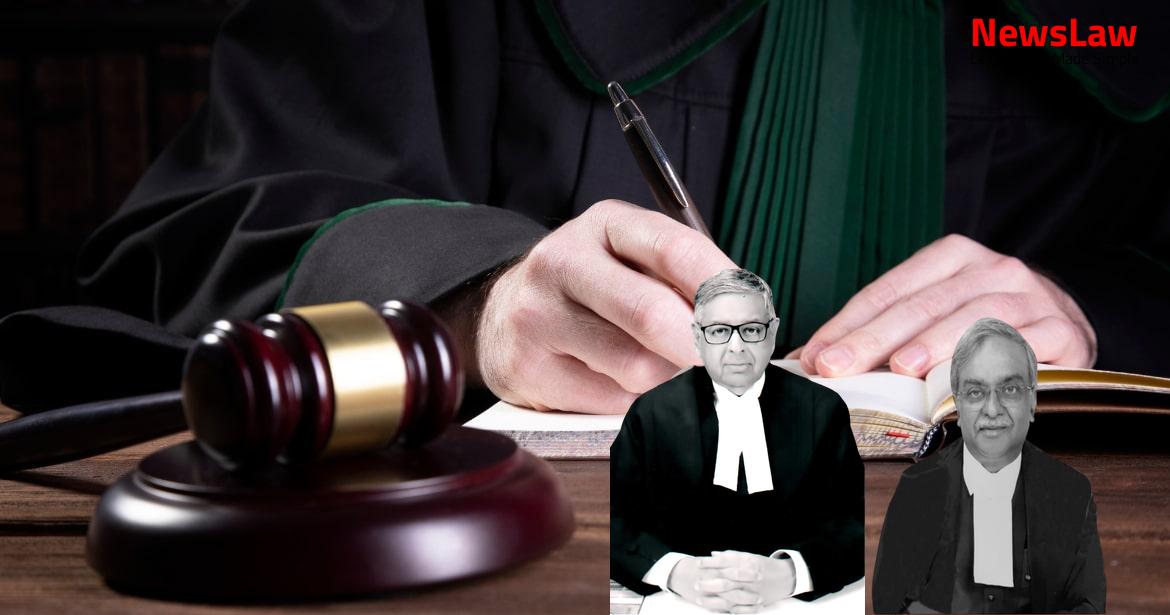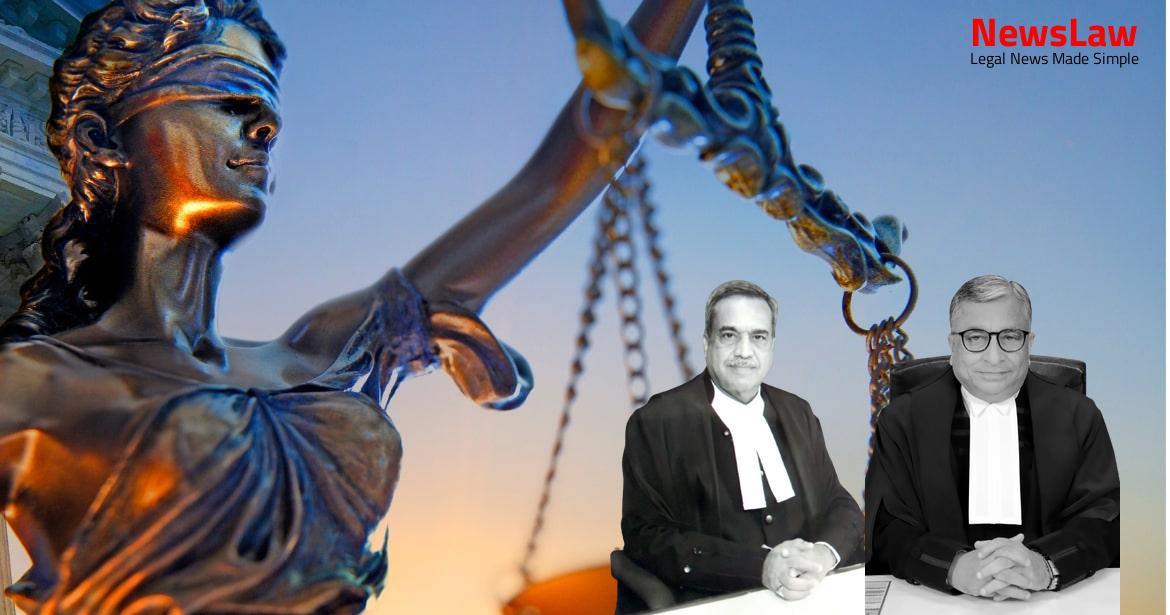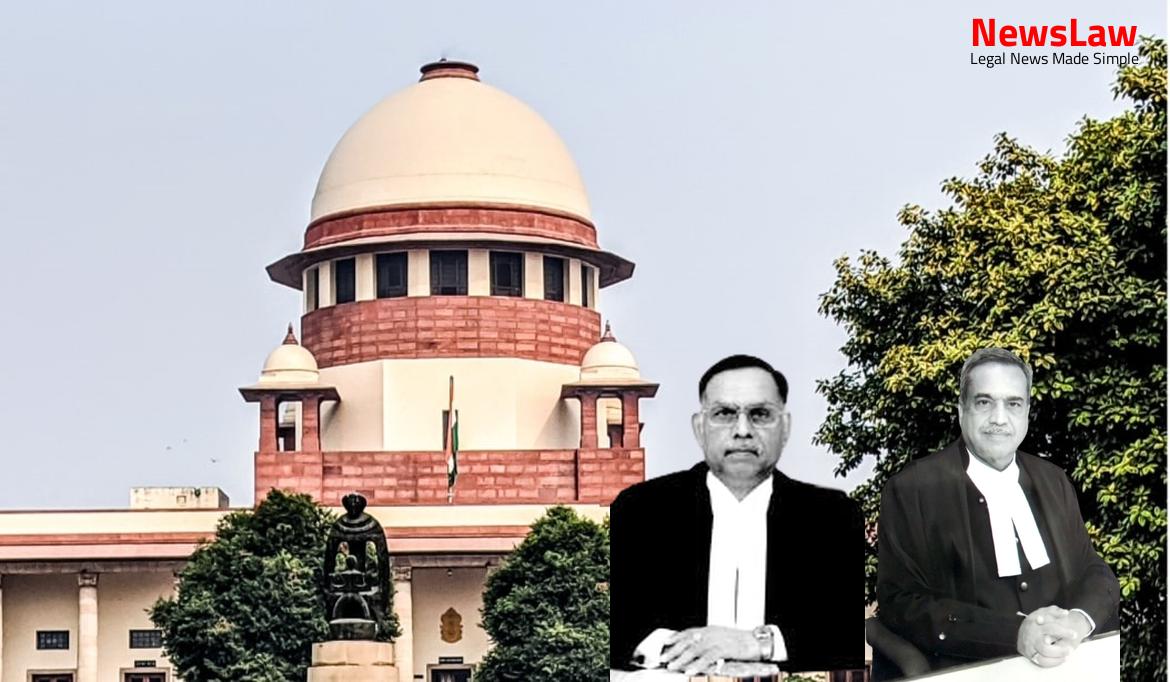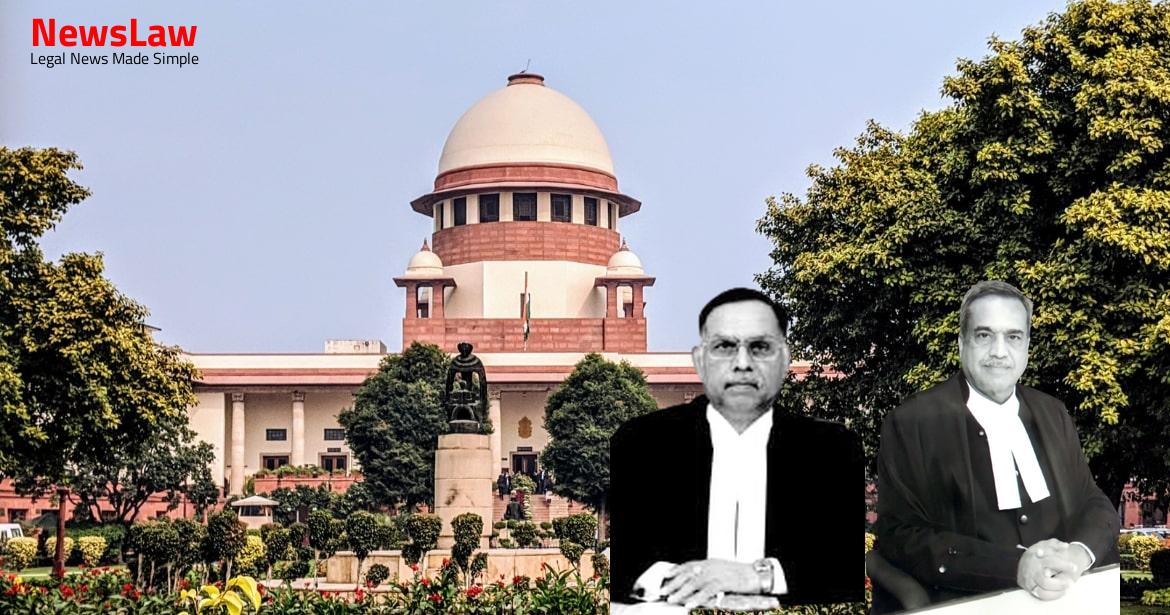Explore the legal analysis behind the deletion of Section 4(2) in the Land Reforms Act which has significant implications on succession laws. The court’s detailed examination of the legislative changes provides insight into how such amendments affect the application of laws in India.
Facts
- The civil appeal challenges the judgment of the Delhi High Court regarding the constitutionality of Section 50(a) of the Delhi Land Reforms Act, 1954.
- Mukhtiar Singh’s inheritance, pertaining to Ishwar Singh’s branch, was succeeded by his grandsons under Section 50(a) of the Act.
- Section 50 of the 1954 Act outlines the order of succession for males upon death.
- The appellants challenged the validity of Section 50(a) through a petition under Article 226 of the Constitution of India.
- An application was filed by the Advocate on Record seeking discharge from the case due to being denied rights in inheritance along with respondent Nos. 3 and 4.
- Division Bench of the High Court considered various submissions.
- The 1954 Act was placed in the Ninth Schedule prior to the Kesavananda Bharati case.
- Reliance was placed on Article 31(B) of the Constitution for immunity to the legislation.
- The writ petition was dismissed in the judgment dated 11.09.2009.
Also Read: Non-compliance with requirements of Section 81(3) of the Representation of the People Act, 1951
Issue
- The main issue in this case is the dispute over agricultural property held by Mukhtiar Singh.
- The genealogy provided shows the relationship between the appellants and the contesting respondents, establishing their connection to Ishwar Singh.
- The appellants are the widow and daughter of Ishwar Singh, while the contesting respondents are his sons.
- This genealogy is crucial in determining the rightful claimants to the agricultural property in question.
Also Read: Setting Minimum Qualifying Marks for Viva Voce: A Question of Legality
Arguments
- Appellants argued that the succession provided in the 1956 Act should prevail over the 1954 Act due to Article 254 of the Constitution.
- With the deletion of Section 4(2) of the 1956 Act, it was contended that the 1954 Act should not apply as the succession would now be governed by the 1956 Act.
- Following the Vineeta Sharma vs. Rakesh Sharma & Ors. judgement, it was suggested that the repeal of Section 4(2) of the 1956 Act should be retrospective, and the amendment in Section 6 of the 1956 Act should also be viewed as retrospective.
- Reference was made to the Babu Ram vs. Santokh Singh and others case to support the argument that the provisions of the 1956 Act should be applied.
- The respondent argued that the evidence provided by the appellant was insufficient to prove their case.
- The respondent claimed that they had met all the necessary requirements and fulfilled their obligations.
- They contended that the appellant’s claims were not substantiated and lacked credibility.
- The respondent insisted that their actions were in line with the law and regulations.
- They maintained that the decision should be upheld in their favor based on the facts presented.
Also Read: Willful Disobedience and Rectification of Court Orders
Analysis
- Article 254 of the Constitution addresses the issue of inconsistency between laws made by Parliament and laws made by State legislatures.
- If a State law contradicts a Parliament law on a matter within the Concurrent List, the Parliament law will prevail.
- The Uniform Civil Code under the 1954 Act applies equally to all land holders regardless of religion, caste, or creed.
- A settled law should not be disturbed unless necessary.
- The question of repugnancy only arises if both Parliament and State legislatures have made laws on a matter in the Concurrent list.
- The deletion of Section 4(2) of the 1956 Act cannot have a retrospective effect.
- Article 254 of the Constitution does not indicate any conflict due to the deletion of Section 4(2).
- The argument that the 1956 Act is a general law while the 1954 Act is a special law is dismissed as the 1954 Act pertains to specific aspects of agricultural holdings.
- The deletion of Section 4(2) does not impact rights already acquired or accrued.
- The omission of Section 4(2) under the General Clauses Act does not affect previous operations of the said section.
- The effect of the deletion is limited to successions occurring after the deletion date of 09.09.2005.
- State enactments relating to Agricultural land tenures are considered as special law.
- Section 4(2) of the 1956 Act, which declared that the Act does not affect other laws related to agricultural holdings, was deleted in 2005.
- The deletion of a statute or part of a statute is treated similarly as an omission or repeal according to the General Clauses Act.
- Various court decisions like ‘L.R. Brothers Indo Flora Ltd. v. Commissioner of Central Excise’ and ‘Hitendra Vishnu Thakur v. State of Maharashtra’ support the application of Section 6 even when a part of a statute is deleted.
- The expressions ‘delete’, ‘omit’, and ‘repeal’ are defined in legal references emphasizing the action of abolishing or removing a law or part thereof.
- The distinction between ‘delete’, ‘omit’, and ‘repeal’ is elaborated with reference to legal definitions.
- The case of ‘M/s. Innoventive Industries Ltd. vs ICICI Bank and Ors.’ is cited for further understanding.
- The High Court of Bombay was correct in its conclusion
- The deletion of Section 4(2) of the Act means there is no exception to the applicability of Section 22 of the Act
Decision
- Consideration of a specific facet of the matter was not necessary for the appeal determination.
- The appeal was reviewed and ultimately dismissed for the reasons stated above.
- No costs were ordered for the appeal proceedings.
Case Title: HAR NARAINI DEVI . Vs. UNION OF INDIA (2022 INSC 988)
Case Number: C.A. No.-022957-022957 / 2017



